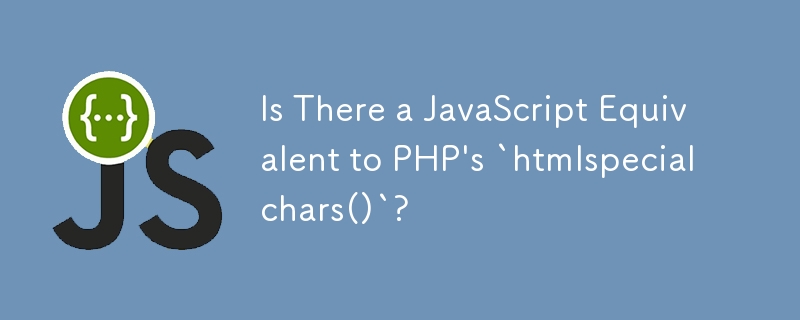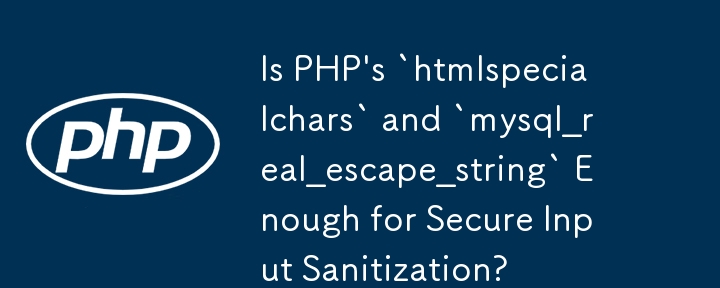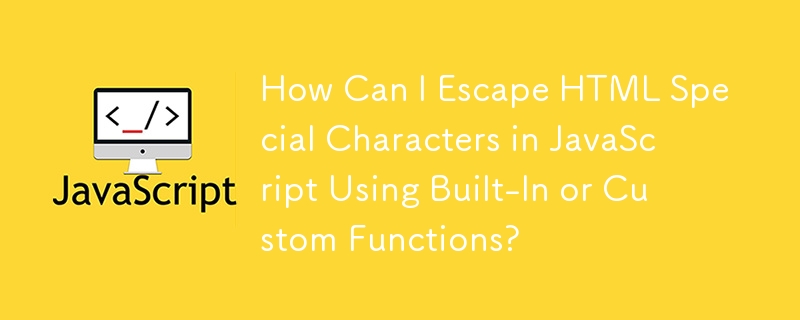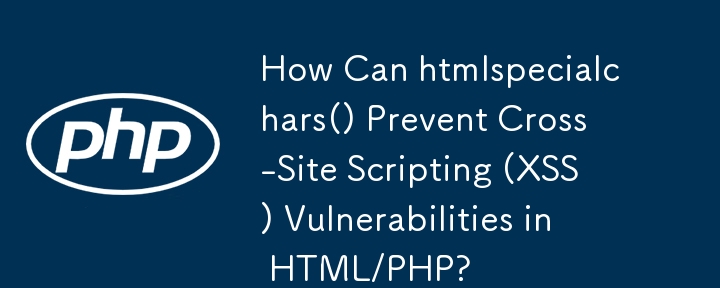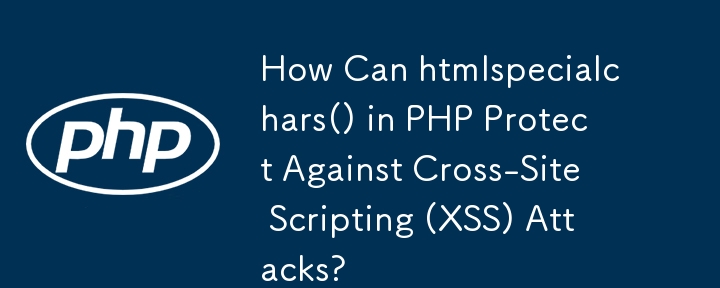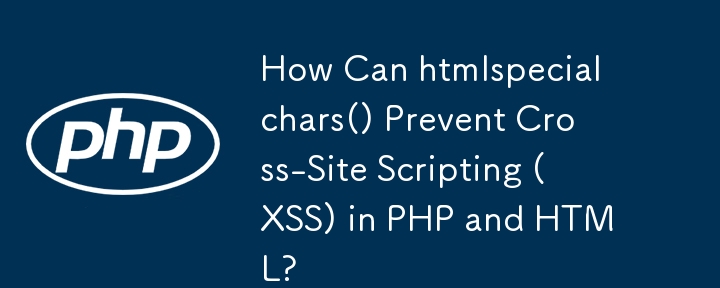Found a total of 10000 related content
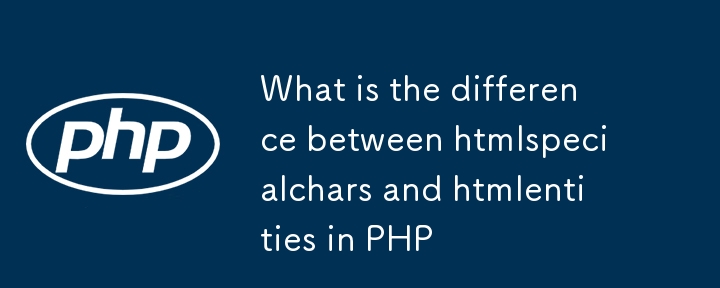
What is the difference between htmlspecialchars and htmlentities in PHP
Article Introduction:htmlspecialchars only encodes a few key HTML special characters to prevent XSS attacks and is suitable for user input processing; htmlentities encodes characters of all available HTML entities, suitable for multilingual content. For example, htmlspecialchars will escape, ",' (requires ENT_QUOTES), &, and htmlentities will also encode, such as é in café as é. When selecting, if you need to be secure and non-ASCII encoding, use htmlspecialchars, and if you need to be compatible with old systems or multiple languages, use htmlentities, and always specify UTF-8
2025-07-11
comment 0
390
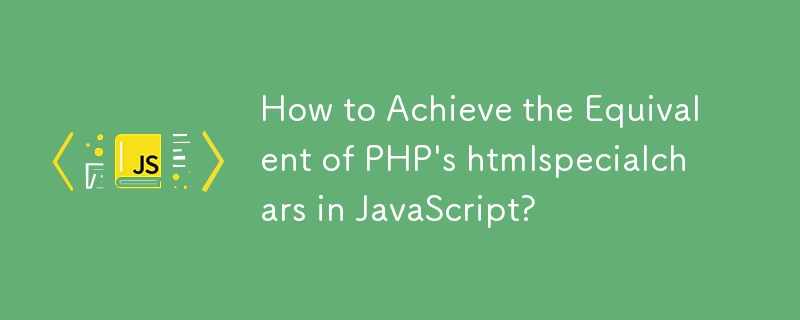
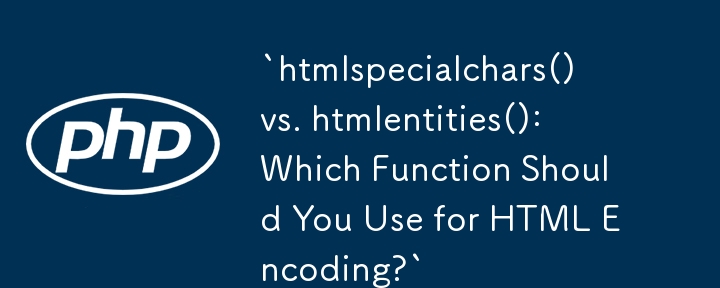
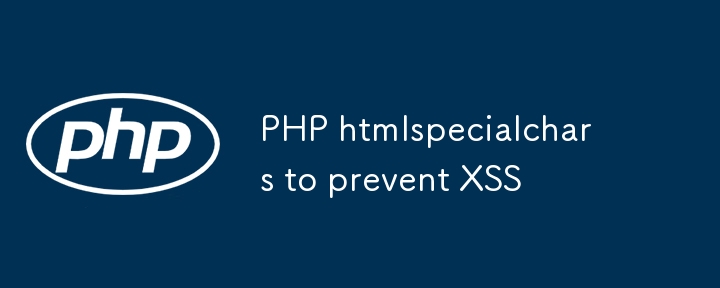
PHP htmlspecialchars to prevent XSS
Article Introduction:XSS is a cross-site scripting attack that steals cookies or hijacks the session by inserting malicious scripts; htmlspecialchars() can escape special characters into HTML entities to prevent the browser from executing. 1.XSS often occurs when user input is directly displayed, such as comments, search boxes, etc.; 2.htmlspecialchars() avoids execution by escaping characters such as, &, etc.; 3. Correct use includes: always escape the output content, specify the encoding as UTF-8, not escape data before storage, and select processing methods according to the context; 4. Easily ignored points include: quotation marks are required to be closed in HTML attributes, rich text needs to be used with whitelist filters, and json_e should be used in JavaScript.
2025-07-11
comment 0
495

Explain Cross-Site Scripting (XSS) and how to prevent it in PHP (htmlspecialchars).
Article Introduction:XSS is an attack that is executed in the user's browser by injecting malicious scripts. Using the htmlspecialchars function in PHP can effectively prevent XSS attacks: 1) htmlspecialchars converts special characters into HTML entities to prevent browsers from interpreting them as code; 2) When using in HTML attributes, quotation marks must be escaped using the ENT_QUOTES flag; 3) Combining other security measures, such as input verification and output encoding, multi-level protection is formed.
2025-04-08
comment 0
876

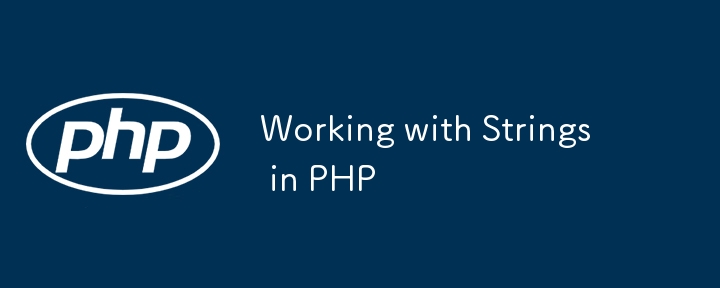
Working with Strings in PHP
Article Introduction:PHP often uses dot styling, sprintf formatting, strpos search, str_replace replacement, trim cleaning, htmlspecialchars anti-XSS, and urlencode encoding. 1. Use . or sprintf() for splicing; 2. Use strpos() for search, and replace str_replace() for str_replace(); 3. Use trim(), strip_tags(), and htmlspecialchars() for cleaning; 4. Use mb_convert_encoding() for encoding and conversion, and use urlencode()/urldecode() for URL encoding and decoding.
2025-07-15
comment 0
816

How Do I Protect Against Cross-Site Scripting (XSS) in PHP?
Article Introduction:This article details securing PHP applications against Cross-Site Scripting (XSS) attacks. It emphasizes a multi-layered defense using input validation (e.g., filter_input(), filter_var()), output encoding (htmlspecialchars()), and secure coding pra
2025-03-10
comment 0
622

How to Protect Against Cross-Site Scripting (XSS) in PHP 8?
Article Introduction:This article details how to prevent Cross-Site Scripting (XSS) vulnerabilities in PHP 8. It emphasizes a multi-layered approach combining input validation (using filter_var()), context-aware output encoding (htmlspecialchars(), json_encode()), and s
2025-03-10
comment 0
682





